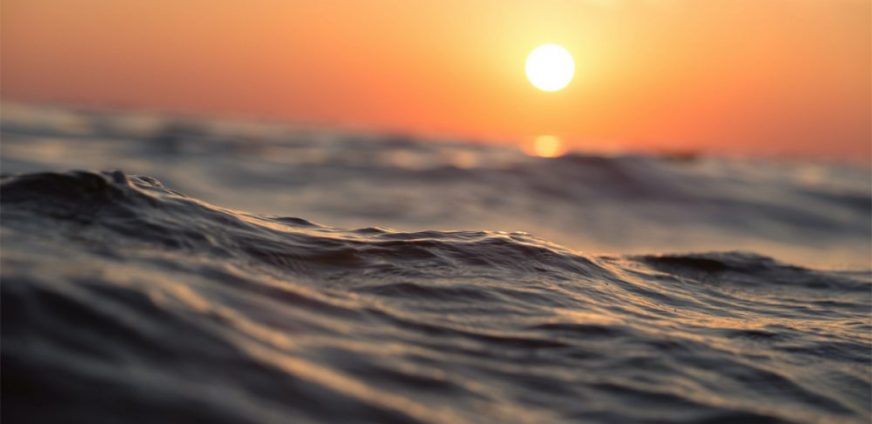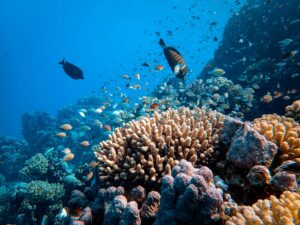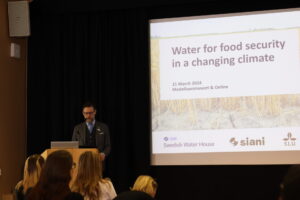Why water is so important for world peace
Learn more
Read the Oregon State University’s analysis on conflicts in the 20th century from a water perspective
To learn more about how to strengthen cooperation:
Watch the SIWI High-Level Panel on Water Diplomacy: Navigating to a Resilient Future
Climate change is a risk multiplier
Global warming is however changing the picture in significant ways. It exacerbates water scarcity and competition over water at a time when demand is already rising due to economic growth and swelling populations. Climate change could trigger a further 20-40 per cent decline in food and water availability, according to research from the Stockholm International Peace Research Institute.
Such dramatic shifts are likely to increase social tensions and conflicts, at at the community level and between countries, especially if there is a lack of well-functioning institutions. Unfortunately, water scarcity is especially severe in many regions that already suffer from many other difficulties. Of the world’s 17 most water-scarce countries are 12 located in the Middle East and North Africa. Research by the European Commission’s Joint Research Centre has identified five “hotspot” water basins marked by high water stress and where demographic and climatic conditions are likely to exacerbate these “hydro-political risks”: the Nile, the Ganges/Brahmaputra, the Indus, the Tigris/Euphrates, and the Colorado River basin.
Learn more
Water diplomacy and cooperation can contribute to peace
SIWI works in many of the world’s most unstable regions to support transboundary cooperation over shared waters. Countries can strengthen their climate resilience by jointly managing a shared river, lake, or groundwater aquifer. Through the collaboration, they also improve relationships with other countries which can reduce the risks of tensions and armed conflicts.
But how could this positive cycle be set in motion in a region marked by traditional mistrust between neighbouring countries? That question is receiving more and more scholarly attention. SIWI contributes to research on water diplomacy, which can be defined is a process leading towards establishing and/or enhancing technical and political cooperation over shared waters among a wide range of actors. We also actively support countries willing to engage in collaboration, for example by facilitating dialogues, organizing trainings, and providing guidance on policies, data sharing and the design of joint institutions.
Learn more
Read the policy brief Water Diplomacy Facilitating Dialogues
For a more in-depth understanding:
Try the Journal of Hydrology’s Special Issue on Water Diplomacy with SIWI’s Dr Martina Klimes as editor
In Stories from the Eastern Nile River Basin, hear from journalists who have participated in a SIWI workshop write about transboundary water cooperation around the Nile
To learn more about youth perspectives in water diplomacy:
Check out this report
Watch this seminar
Interest is growing in climate-smart security policies
The traditional siloed approach to security is no longer sufficient. Experts on security, climate, environment, and development need to share knowledge to understand new threats that arise from climate change, environmental degradation, and population growth as well as social, economic, and political factors. SIWI seeks to raise awareness of these complex interlinkages and bring together actors from different fields to create more of a common understanding of emerging risks. Every year we host an influential High-Level Panel on Water Diplomacy with a broad range of experts.
Learn more
Watch the high-level panels to hear leading experts discuss topics such as:
Is water diplomacy a tool for the future?
How can water diplomacy become more inclusive?
What is climate-smart security?
How can we strengthen collaboration?
Growing uncertainty means water governance is increasingly important to peace
There is growing interest in how sustainable management of natural resources can reduce the risk of armed conflict. SIWI works to raise awareness of how good water management can contribute to food security and livelihoods for people in low-income countries. New research also points to how criminal gangs, terror groups and local militias are trying to take control over local water resources to gain ground. To prevent this exploitation of people’s vulnerability, it is especially important to improve water governance in fragile contexts. SIWI is involved in research as well as capacity-building to increase this understanding.
Learn more
SIWI experts explored the security impacts of the global pandemic in fragile and conflict-affected states:
Read the paper Tracing Intersections of COVID-19: Gender, Water and Armed Conflict
Meet one of the authors, Panchali Saikia:
Watch SIWI Corner: Water and Peace
With these resources, you get a solid understanding of the increasingly important links between water, security, and development. SIWI is continuously working to create new knowledge and share our experiences in the field, so stay tuned for more updates.









